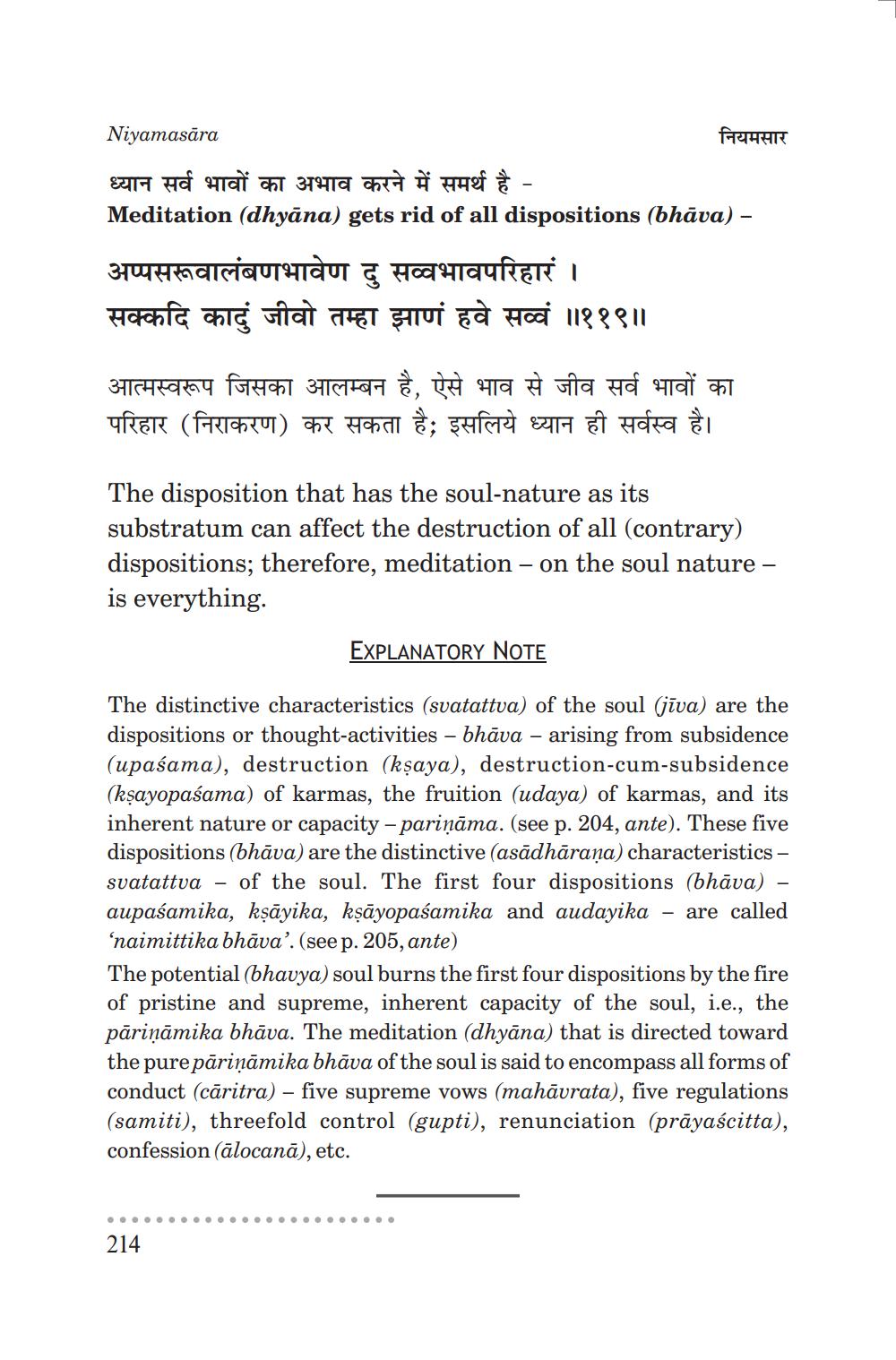________________
Niyamasara
ध्यान सर्व भावों का अभाव करने में समर्थ है Meditation (dhyana) gets rid of all dispositions (bhava) -
अप्पसरूवालंबणभावेण दु सव्वभावपरिहारं । सक्कदि कादुं जीवो तम्हा झाणं हवे सव्वं ॥११९॥
-
आत्मस्वरूप जिसका आलम्बन है, ऐसे भाव से जीव सर्व भावों का परिहार (निराकरण) कर सकता है; इसलिये ध्यान ही सर्वस्व है।
The disposition that has the soul-nature as its substratum can affect the destruction of all (contrary) dispositions; therefore, meditation - on the soul nature - is everything.
नियमसार
EXPLANATORY NOTE
214
1
The distinctive characteristics (svatattva) of the soul (jiva) are the dispositions or thought-activities - bhāva - arising from subsidence (upaśama), destruction (kṣaya), destruction-cum-subsidence (kṣayopasama) of karmas, the fruition (udaya) of karmas, and its inherent nature or capacity -pariņāma. (see p. 204, ante). These five dispositions (bhāva) are the distinctive (asādhāraṇa) characteristics - svatattva - of the soul. The first four dispositions (bhāva) aupaśamika, kṣāyika, kṣāyopaśamika and audayika
'naimittika bhava'. (see p. 205, ante)
.......
-
The potential (bhavya) soul burns the first four dispositions by the fire of pristine and supreme, inherent capacity of the soul, i.e., the pārināmika bhāva. The meditation (dhyana) that is directed toward the pure pāriņāmika bhava of the soul is said to encompass all forms of conduct (căritra) - five supreme vows (mahāvrata), five regulations (samiti), threefold control (gupti), renunciation (prayaścitta), confession (alocană), etc.
are called




